Alexandra Boulat
-
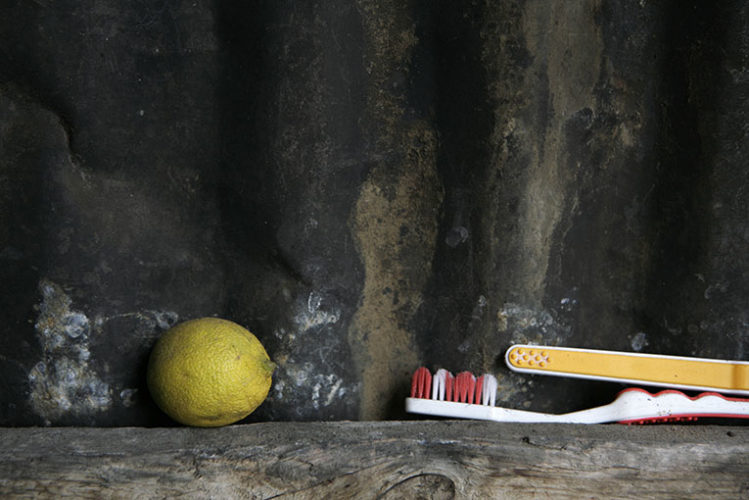
A week in Gaza hell
-
Still life - Tooth brush and a lemon in a bathroom in Gaza -
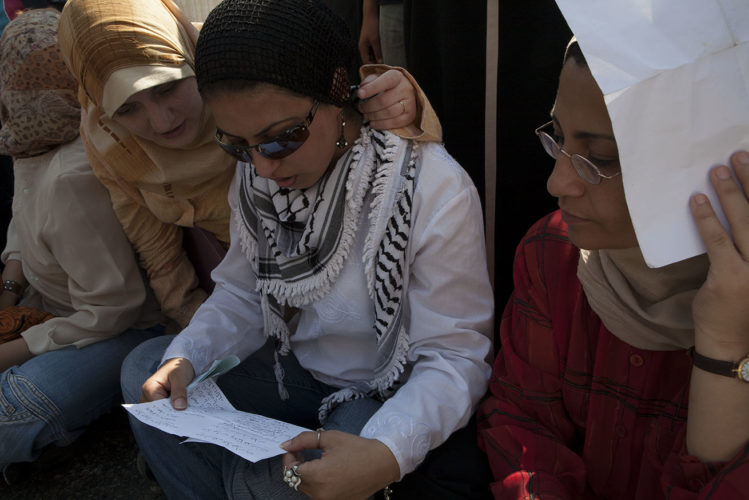
A week in Gaza hell
-
Women demonstration in front of the Parliament in Gaza City. September 18, 2006 -
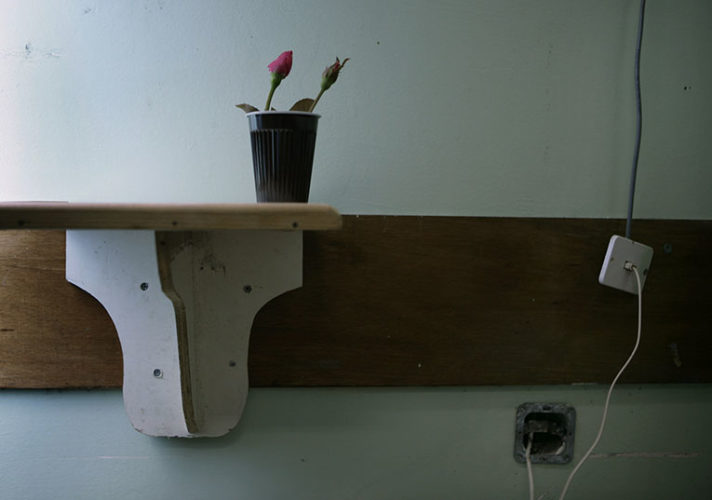
A week in Gaza hell
-
The office of the ambulance driver at Jabalia hospital during an Israeli offensive to pressure Hamas militants to release 19 year old Cpt. Gilad Shalit, who was taken prisoner last Sunday when Gaza militants tunneled under the border to attack an Israeli post and killed three other soldiers. Gaza, June 28, 20006 -
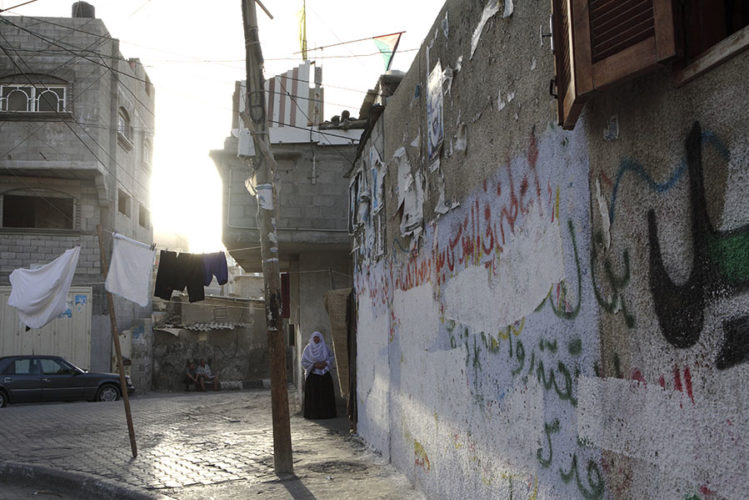
A week in Gaza hell
-
Prime Minister Ismail Haniyeh's neighborhood in the Beach Camp. Gaza -
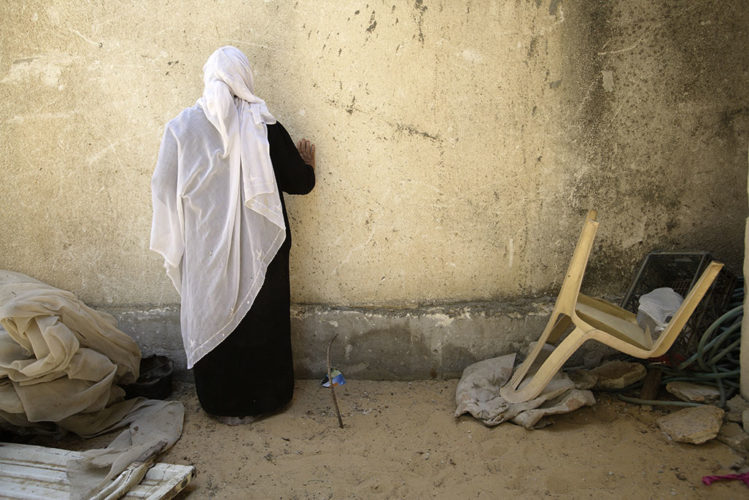
A week in Gaza hell
-
Huda Ghalia, 10, at the funeral of her three brothers, mother and father, killed on the beach by an Israeli strike, in the northern Gaza Strip June 9, 2006. The Israeli strike and artillery fire killed 10 Palestinians on Friday, including seven people on a crowded beach in Gaza. According to Palestinian officials, this is the highest Palestinian death rate in a single day since December 2004. -
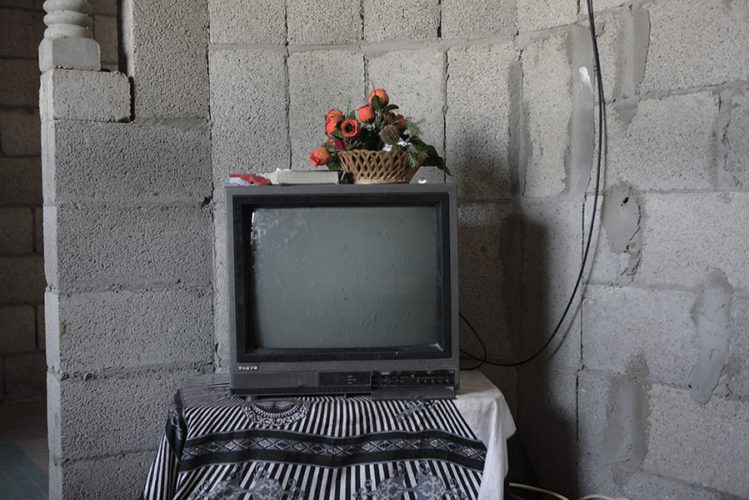
A week in Gaza hell
-
The interior of a Palestinian home after the departure of Israeli soldiers who kept an entire family confined to one room in Beit Lahiya in the northern Gaza Strip. Israel had launched an operation called "Summer Storm" to secure the release of an Israeli soldier and stop the daily missile attacks from Gaza on southern Israel. -
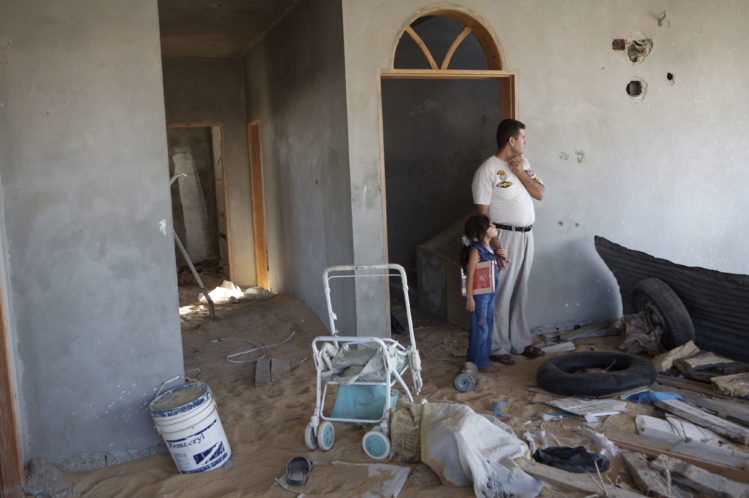
A week in Gaza hell
-
Abu Atim and his daughter look at the mess left by Israeli special troops after occupying their home during an incursion in early September 2006 in Mansoura, near the Karni border crossing. During the 8 days they occupied the house, the Israeli soldiers kept the 16 members of Abu Atim's family confined to a room, without freedom of movement, in miserable conditions, under stress and fear. Since they left, the family is in a state of shock and does not have the energy to clean up and resume a normal life. September 18, 2006. -
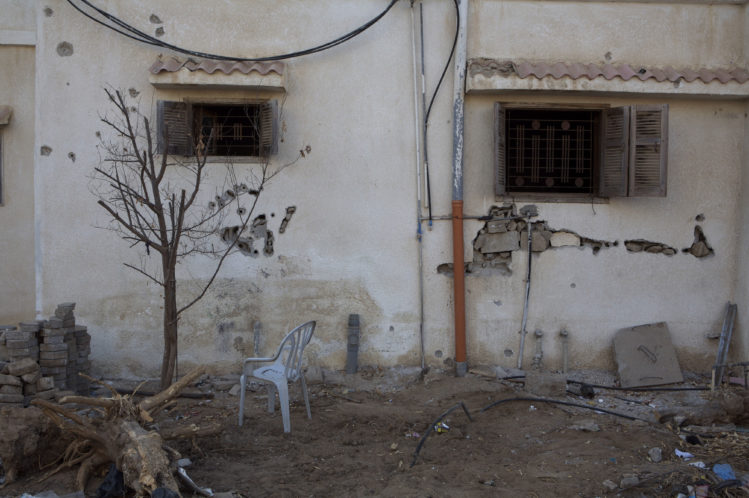
A week in Gaza hell
-
Destruction by Isarelian special forces during an incursion in Mansoura near the Karni border crossing. Gaza 18 September 2006 -
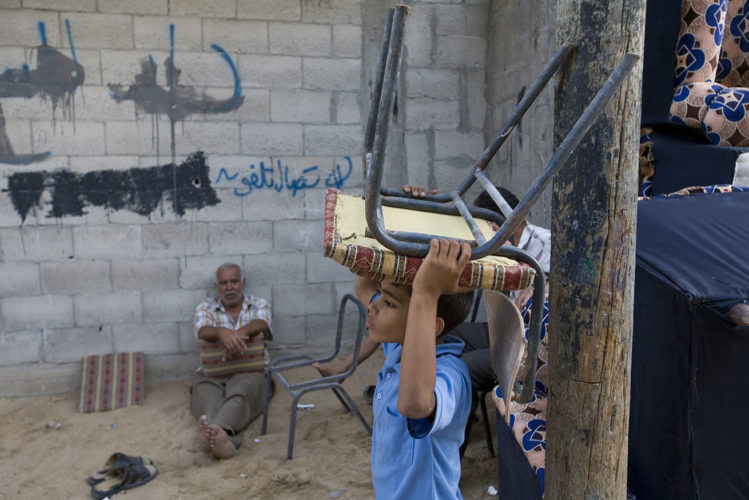
A week in Gaza hell
-
Abu Ali's job is to repair furniture that people sell to him following an economic crisis. Jabalia camp, 2006 -
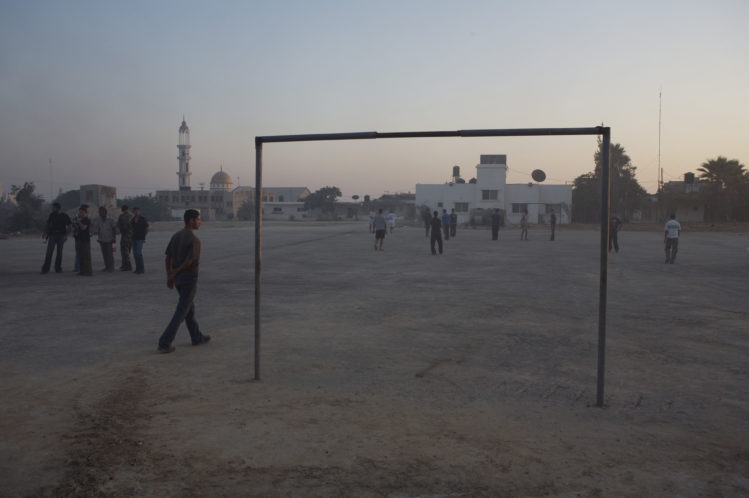
A week in Gaza hell
-
Palestinians play soccer at a Palestinian army base in the Karni industrial area near the border with Israel in the northern Gaza Strip. September 20, 2006. -
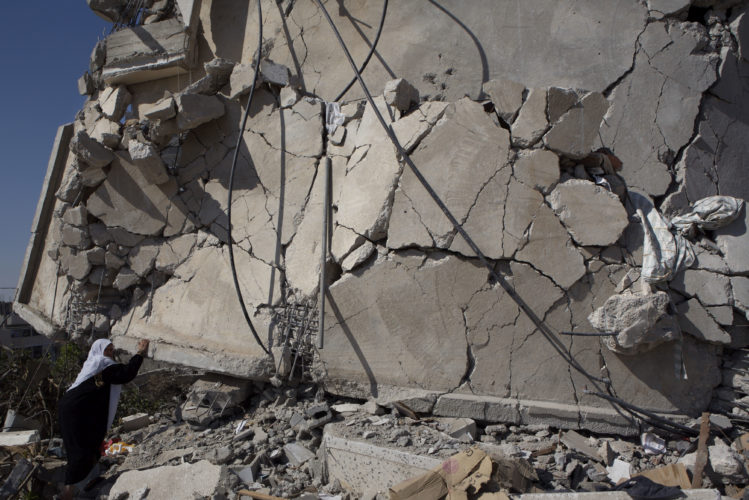
A week in Gaza hell
-
A Palestinian woman stands near her home that was destroyed by the Israeli strike in Jabalia in the northern Gaza Strip in early September 2006. A man suspected of being a Hamas leader was supposed to be living in the house, but he had moved out just before the attack. Other families in the building remain homeless. 19 September 2006. -
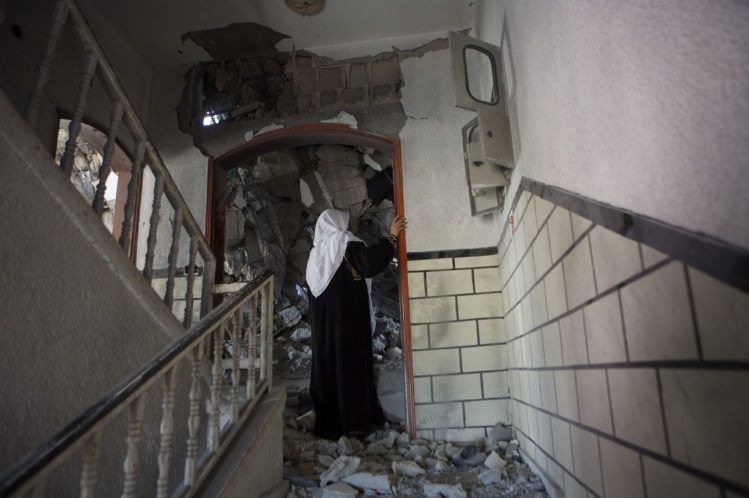
A week in Gaza hell
-
A Palestinian woman in her home that was destroyed by the Israeli strike in Jabalia in the northern Gaza Strip in early September 2006. A man suspected of being a Hamas leader was supposed to be living in the house, but he had moved out just before the attack. Other families in the building remain homeless. 19 September 2006. -
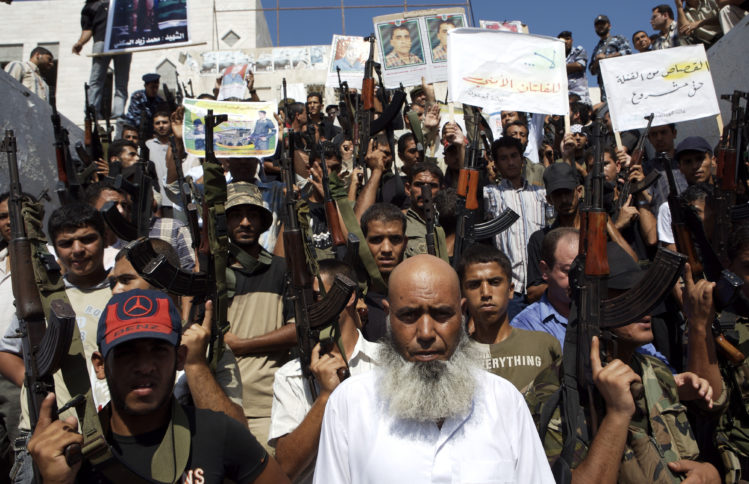
A week in Gaza hell
-
Palestinian bodyguards demonstrate in front of the Gaza Parliament, to protest against the security situation in Gaza. They are calling for the arrest of the gang that killed an official and four bodyguards on September 14 in Gaza. 19 September 2006 -
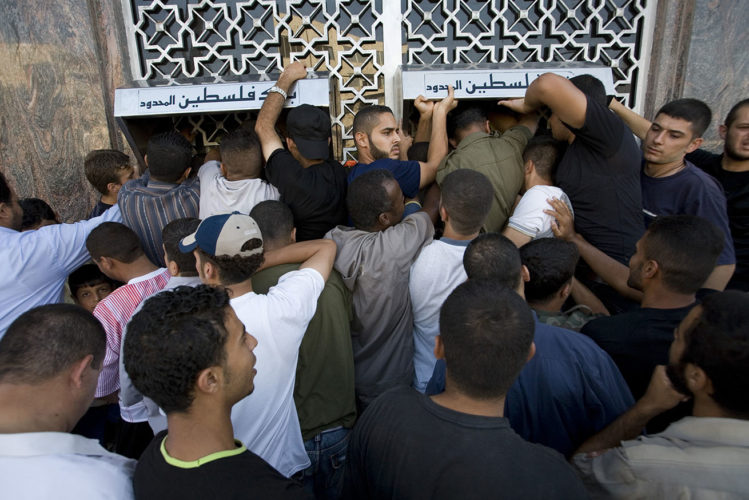
A week in Gaza hell
-
For the first time in 3 months, workers receive their salaries in the Palestinian Bank cash machine. Gaza City, September 26, 2006 -
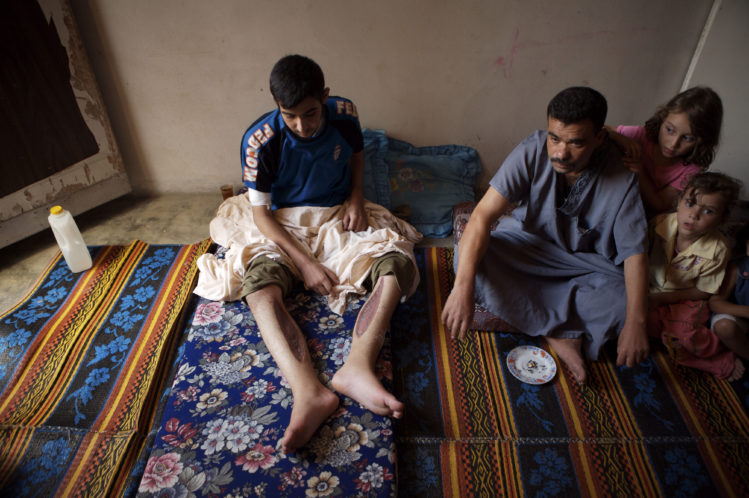
A week in Gaza hell
-
Awad Nabi Abu Silmiya, 18, is the only survivor of an Israeli bombing that destroyed his home and killed 9 members of his family in Gaza City on July 12, 2006. If the Israelis had agreed to take him to a hospital in Israel for treatment, he would have been able to keep the mobility of his legs, but since he had to be treated in Gaza, he will never walk again. Here with his uncle and one of his uncle's children. 20 September 2006 -
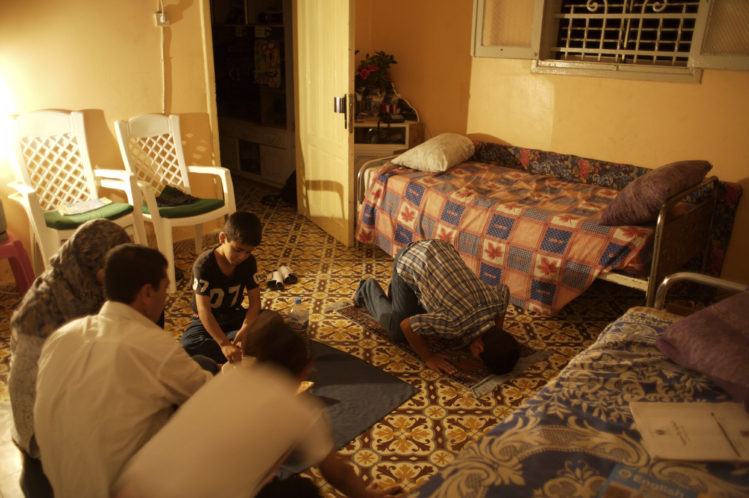
A week in Gaza hell
-
Feheme's brother in prayer before dinner. Fehem suffers from blood cancer and cannot be treated because his parents do not have enough argon to send him abroad. The dinner, for 5 members of the family, is lit by a kerosene lamp because there is no electricity in the house since the Israelis destroyed the power plant last June. September 20th 2006. -
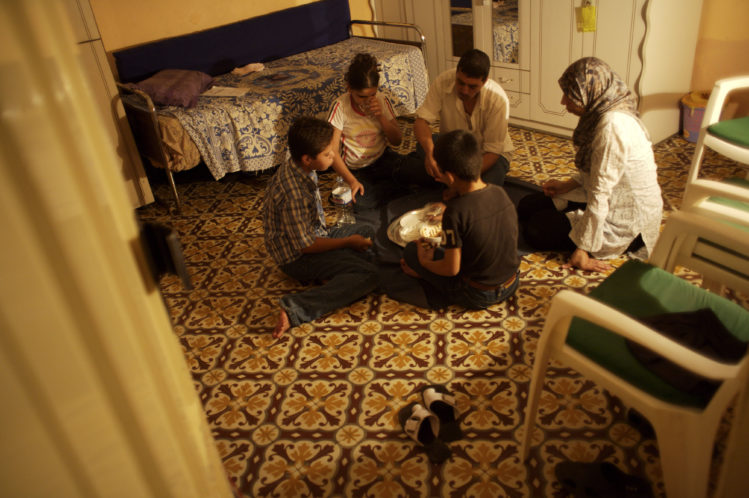
A week in Gaza hell
-
Feheme and his family dine by the light of a kerosene lamp because they have no electricity since the Israelis destroyed the power plant in June 2006. Feheme, 11, who suffers from blood cancer, cannot be treated because his parents cannot afford to send him abroad. September 20th 2006. -
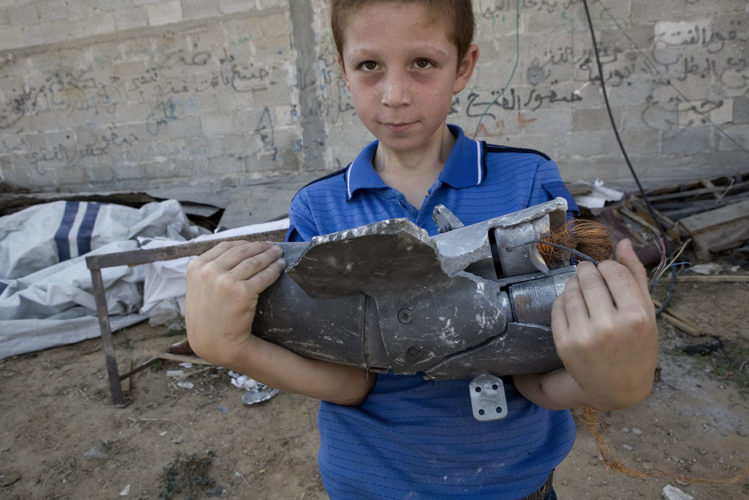
A week in Gaza hell
-
A Palestinian boy holds an Israeli bomb that destroyed his home in Jabalia in the northern Gaza Strip in early September 2006. Thirty minutes before the air strike, his father had received a phone call from the Israelis telling him that he and his family should leave their home because they were about to target it. A man suspected of being a Hamas leader was supposed to be living in the house, but he had left the building just before the attack. The family that lived there has been homeless since then and no one wants to rent them a house or an apartment for fear that they will be bombed again. 19 September 2006 -
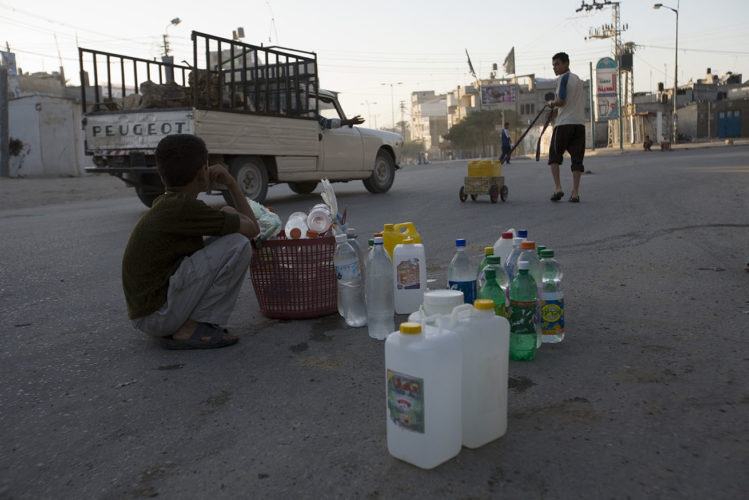
A week in Gaza hell
-
Palestinians collect water from a public fountain in Khan Younes, central Gaza Strip. September 29, 2006 -
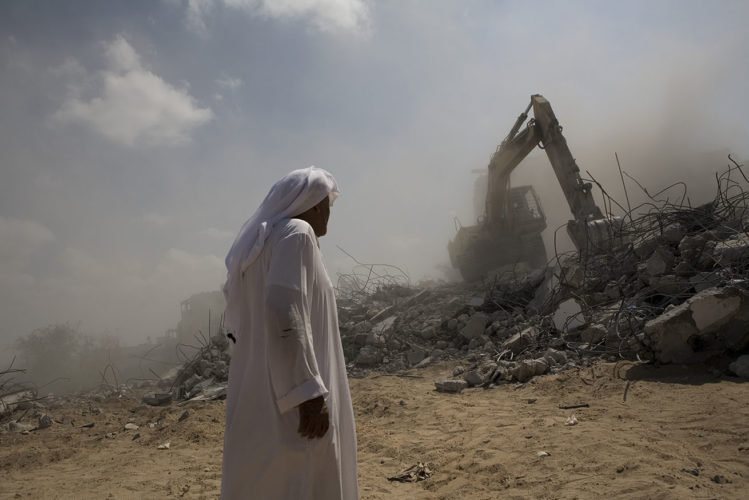
A week in Gaza hell
-
A Palestinian man stands in front of his house destroyed by Israeli bombing in Jabilia, northern Gaza Strip in early September 2006. A Palestinian bulldozer clears the rubble. Thirty minutes before the air strike, his father had received a phone call from the Israelis telling him that he and his family should leave their home because they were about to target it. A man suspected of being a Hamas leader was supposed to be living in the house, but he had left the building just before the attack. The family that lived there has been homeless since then and no one wants to rent them a house or an apartment for fear that they will be bombed again. 19 September 2006 -
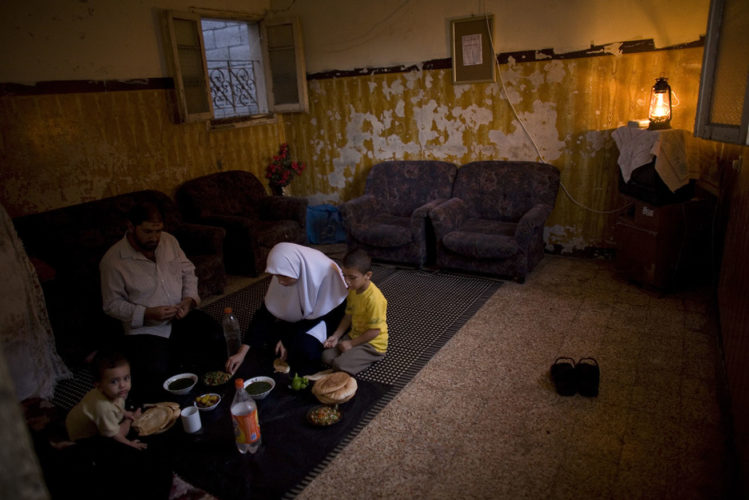
A week in Gaza hell
-
At Abu Hany's house for Iftar, the breaking of the fast during Ramadan. Abu Hany is the father of four boys and two girls. He is the only one who earns money for his family with his 45 US dollars salary as a building guard in Gaza City. His wife and daughters prepare dinner in the kitchen by the light of a kerosene lamp because the electricity only works episodically since the Israelis damaged the Gaza power plant by hitting it in their air strikes in June 2006. -
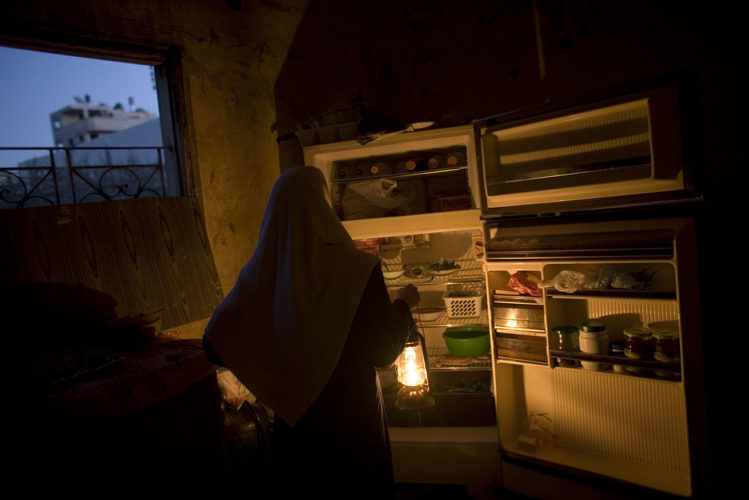
A week in Gaza hell
-
At Abu Hany's house for Iftar, the breaking of the fast during Ramadan. Abu Hany is the father of four boys and two girls. He is the only one who earns money for his family with his 45 US dollars salary as a building guard in Gaza City. His wife and daughters prepare dinner in the kitchen by the light of a kerosene lamp because the electricity only works episodically since the Israelis damaged the Gaza power plant by hitting it in their air strikes in June 2006. -
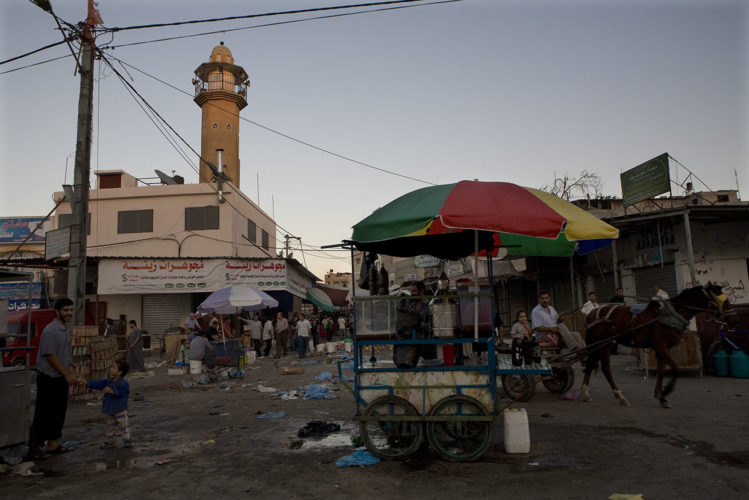
A week in Gaza hell
-
The market in Jabalia, in the northern Gaza Strip. September 27, 2006 -
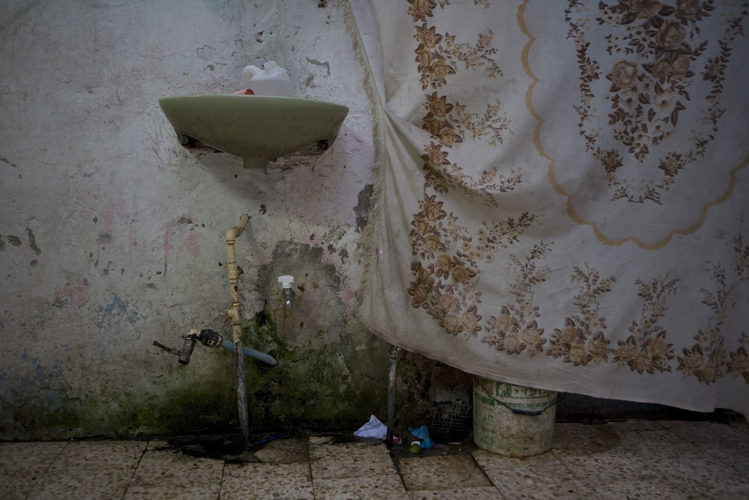
A week in Gaza hell
-
In the refugee camp of Jabalia, in the Gaza Strip. September 27, 2006 -
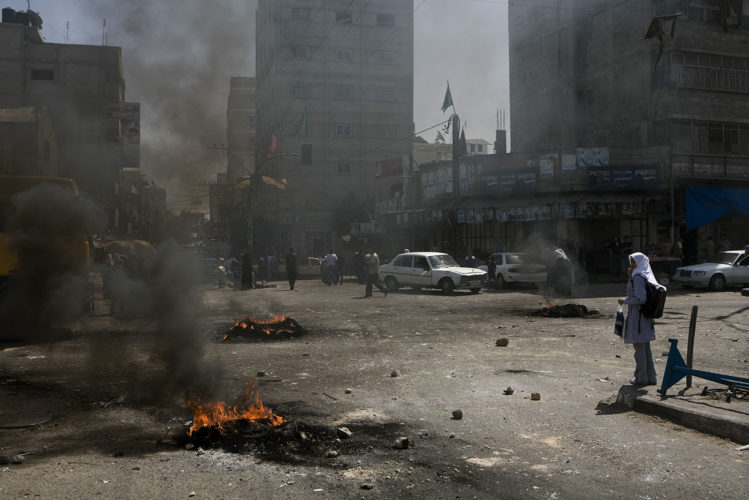
A week in Gaza hell
-
A Palestinian student walks near burning tires during a demonstration by police officers demanding payment of their salaries by the Hamas government. Gaza, September 28, 2006 -
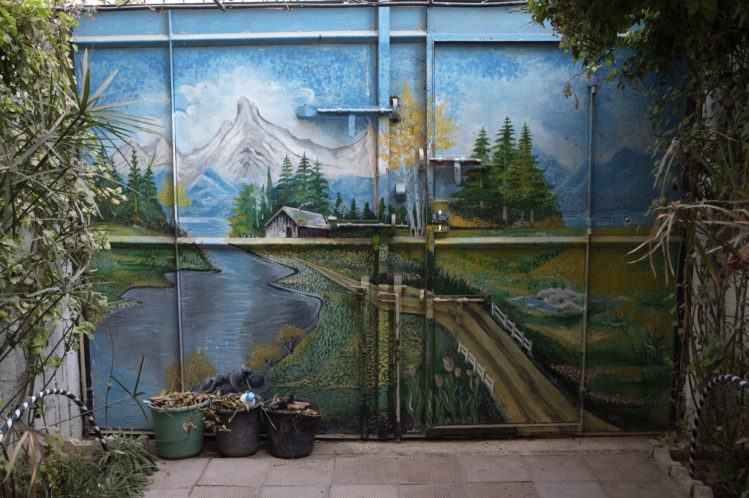
A week in Gaza hell
-
Abu Atim's house occupied by Israeli special troops during an incursion in early September 2006 in Mansoura, near the Karni border crossing. During the 8 days they occupied the house the Israeli soldiers kept the 16 members of Abu Atim's family confined to a room, without freedom of movement, in miserable conditions, under stress and fear. Since they left, the family is in a state of shock and does not have the courage to clean up and resume a normal life. September 18, 2006. -
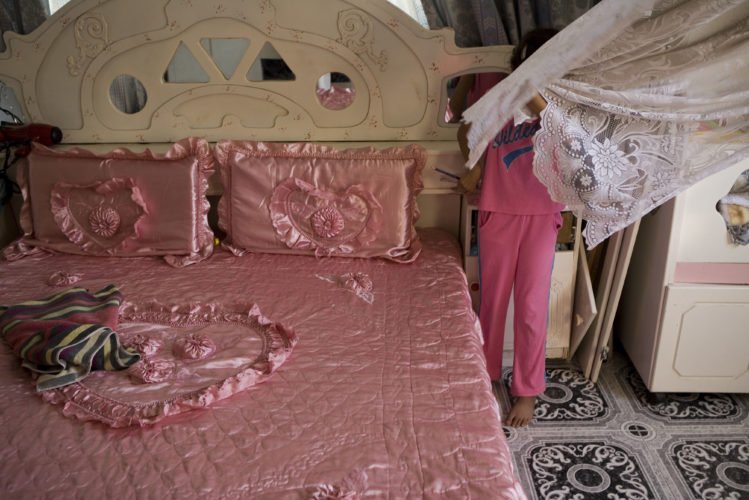
A week in Gaza hell
-
Abu Atim's children in the house that Israeli special forces occupied during an incursion in early September 2006 in Mansoura, near the Karni border crossing. During the 8 days they occupied the house the Israeli soldiers kept the 16 members of Abu Atim's family confined to a room, without freedom of movement, in miserable conditions, under stress and fear. Since they left, the family is in a state of shock and does not have the courage to clean up and resume a normal life. September 18, 2006. -
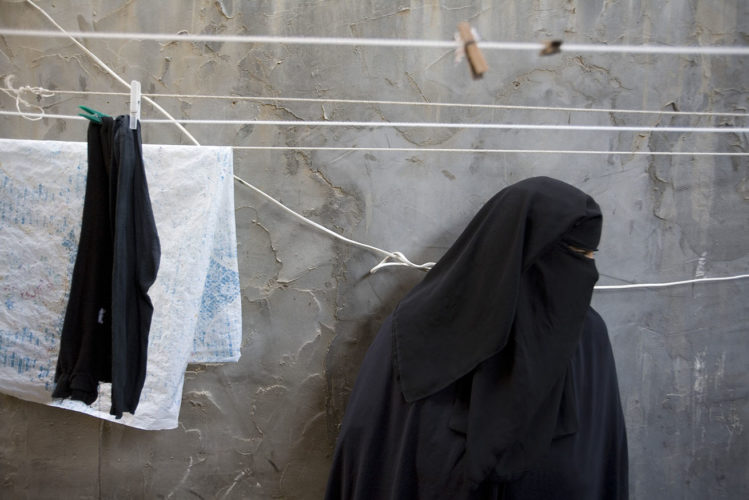
A week in Gaza hella
-
A woman in Rafah, in the south of the Gaza Strip.September 27, 2006 -
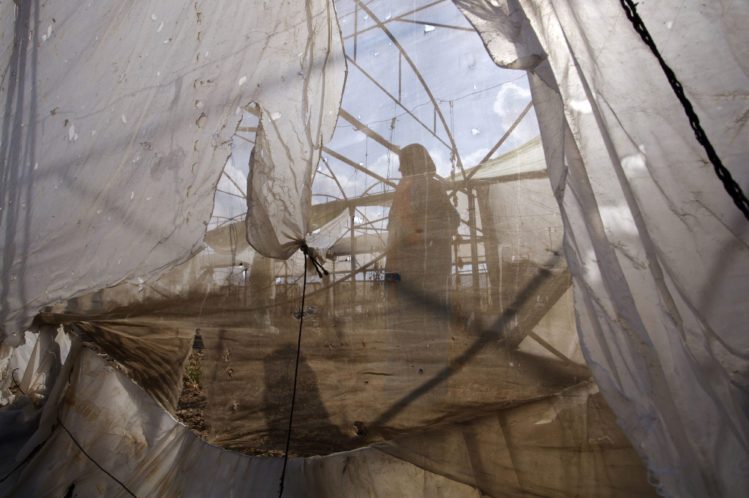
A week in Gaza hell
-
A Palestinian farmer walks in her greenhouse destroyed by Israeli air strikes in late July 2006. September 26, 2006
A week in Gaza Hell
“I’ve been working in the region since the 90’s.
When Hamas won this year’s election, Palestinians were hoping that their economic and social situation would improve, but instead it got worse. The arm wrestling between Hamas, Fatah, Israel and the rest of the world is now drowning the people of Gaza. Late June, after four month of international embargo, the economical situation was already bad, but when the pro-Hamas armed militants abducted an Israeli soldiers, the Israeli army launched a large scale military operation over the Gaza Strip. Now, taking pictures in Gaza has become a struggle. Danger is coming from different sides. On one side, the Israeli airstrikes, snipers and tanks firing; on the other side, a crawling civil war, which Palestinians are not proud of, plus the constant kidnapping threat. But in the end, the biggest challenge is to photograph the situation in a way that will not be redundant. Gaza’s problems are not new and the world have been looking at pictures of the Palestinian misery since so long that even the most violent images have no more impact nor any sense. Even my eyes are tired of the Palestinian drama sometime, and that is maybe why I get caught by details. As the conflict and the pain has become ordinary even for the Palestinians themselves, my intention is to look at the ordinary as well. Life without electricity, an empty fridge, a Television with out images, in the room of a house which construction may never be achieved. Children wearing bright color tee shirts as only sign of happiness, or a plastic cup holding a lonely rose in a hospital room…. I’m not looking for direct impact any more, and beside funerals and destruction, I want to show the daily life of the people in Gaza through their personal environment.”
Alexandra Boulat


